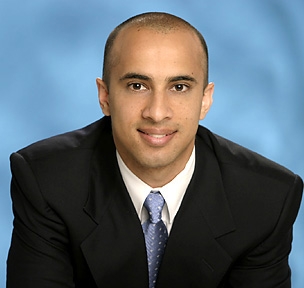
Richard Powell when he lived in Jamaica was a player and a big fan of football. While living in the US, he saw a huge unmet need in the market and filled it with the site fuxito.com. The site was described and hailed as “the online destination where soccer aficionados gather for the latest news, recruiting information, expert analysis and interaction. Positioned as a key vehicle to experience the total soccer culture, community and lifestyle, Fuxito.com provides soccer enthusiasts of all levels a springboard into the soccer experience.”
SC: Where were you born?
RP: St. Andrew, Jamaica.
SC: What schools did you go to?
RP: St. Andrew Prep, Campion High School, Andover (MA), and Harvard (MA)
SC: How old were you when you started Fuxito?
RP: I was 18 years old
SC: What led you to start Fuxito and describe the naming of that site?
RP: I identified a huge market need. Then created the name and brand for the site by combining Futbol (football in Spanish) and exito (success in Spanish).
SC: Describe your start up environment-where was your office, staff numbers, money status before funding?
RP: Office was a house between Harvard and MIT on Mass Ave. Staff was 7, on a budget of US$150k before raising US$1mm in VC money.
SC: From start up to first round of funding, how long? Describe that process briefly.
RP: It took 9 months. The Process can be described as longer than expected.
SC: Guy Kawasaki, co-owner of Garage Ventures is quoted and saying that Web 2.0 companies have it easy in starting businesses (low entry and operational costs, access to ideas, world talent) and that venture funding is stupid i.e. not even necessary…he started truemors.com as a testament to that theory…what’s your own take on that ?
RP: As with every type of business, experience and contacts define how difficult it will be to get to the next level. Many firms still need funding today, though teams and entrepreneurs who have done it before will have it much
easier.
SC: From start up to sale, how long was it?
RP: It was 2.5 years.
SC: Why did you sell/was that your exit plan from the get go?
RP: The market for internet companies collapsed in early 2000. So that was not the original exit plan.
SC: How was the company valued and how much did you sell it for?
RP: The company was valued at over US$120mm at one point. Because of the Internet Bubble we sold it for much less than that!
SC: Why are you now choosing to be a venture capitalist vs. an entrepreneur?
RP: I’m not a VC. I run a PE firm that doesn’t invest in tech firms. It’s Risk-adjusted, it is a better investment model.
SC: What are the top 3 things Jamaica and the Caribbean need to inspire an American 90s internet economy boom?
RP: (1.) Access to capital. (2) Experienced management teams and (3) Greater study of the successful models and how it can be applied to business started in the Caribbean.
SC: Why do you think we are yet to have any You Tube, Google, Yahoo, and EBay type innovations from the Caribbean and can we expect it at all?
RP: Caribbean doesn’t have the depth of contacts or talent that Silicon Valley does.
SC: Do you think you would have had this success story were you still living in Jamaica? What are the advantages you had in living in the US?
RP: No. Advantages I had were 1. Access to capital (2) Experienced management teams and (3) U studied the successful models and how it can be applied to the business idea that I had.
SC: 16. What are the areas can Caribbean tech entrepreneurs look in order to score their first internet million in USD Dollars that is? What are the top 5 viable internet businesses that are now missing in the Caribbean?
RP: I don’t agree with the notion that they are missing from the Caribbean. The most successful tech businesses cater to global audiences, regardless of where they are located. The 4 you listed in #14 are global plays, not
regional. The best advice is to study social and economic trends and build a business that rides irrefutable waves such as (i) aging baby boomers, (ii) globalization, and (iii) increased need to experience new things.

 eCommerce1 year ago
eCommerce1 year ago
Pingback: Interview with a Caribbean Internet Entrepreneur: Richard Powell : Cashing Coconuts